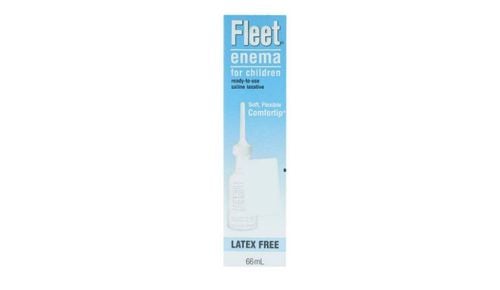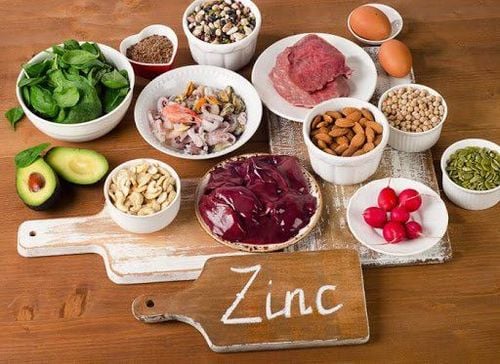Article by MSc, Dr. Mai Vien Phuong - Department of Internal Medicine, Vinmec Central Park International General Hospital
Constipation occurs when bowel movements become infrequent or difficult. If you have fewer than three bowel movements per week, you might be constipated. Certain vitamins can help alleviate constipation. Many vitamins act as natural stool softeners. If you already take these vitamins daily, increasing the dosage may not help. However, adding specific vitamins to your daily routine could reduce discomfort if you haven’t been taking them previously.
1. Taking These Vitamins May Help Relieve Constipation
Vitamin C
Vitamin C is a water-soluble vitamin. Unabsorbed vitamin C acts osmotically in your gastrointestinal tract, drawing water into the intestines and softening stools.
However, excessive vitamin C can cause harm, potentially leading to diarrhea, nausea, and stomach cramps. It may also result in some individuals absorbing too much iron from their food, which can exacerbate constipation.
According to the National Institutes of Health (NIH), the upper limit for vitamin C intake for most adults is 2,000 milligrams (mg) per day. For children under 18, the upper limit ranges from 400 to 1,800 mg depending on their age. The recommended daily dose is significantly lower.
Vitamin B-5
Vitamin B5, also known as pantothenic acid, may alleviate constipation. A 1982 study found that a derivative of vitamin B5, dexpanthenol, might stimulate muscle contractions in the gastrointestinal tract, aiding stool movement.
However, no recent research supports these findings, and current evidence is insufficient to link vitamin B5 directly to constipation relief.
Most animal- and plant-based foods contain pantothenic acid, making supplementation generally unnecessary. The recommended daily intake for most adults is 5 mg, increasing to 6 mg for pregnant individuals and 7 mg for breastfeeding women. For children under 18, the recommended intake ranges from 1.7 to 5 mg daily, depending on age.
Folic Acid
Folic acid, or folate (vitamin B9), may help alleviate constipation by stimulating the production of digestive acids. If your digestive acid levels are low, increasing them can speed up digestion and aid stool movement through the colon.
Whenever possible, consume foods rich in folate instead of taking folic acid supplements. Foods high in folate are typically also high in fiber, which promotes regular bowel movements.
Examples of folate-rich foods include:
-Spinach
-Black-eyed peas
-Fortified breakfast cereals
-Enriched rice

Most people obtain adequate folate from their diet, but supplementation may also be beneficial. The upper limit for folic acid intake is 400 micrograms (mcg) per day for most adults, except during pregnancy when higher doses are recommended. Children aged 1 to 18 can safely consume 150 to 400 mcg daily, depending on their age.
Vitamin B-12
A vitamin B12 deficiency can lead to constipation. If your constipation results from low B12 levels, increasing your intake can help relieve symptoms.
Consider consuming foods rich in B12 instead of supplements. Examples include:
-Beef liver
-Salmon
-Tuna
The recommended daily intake for adults is 2.4 mcg, while children aged 1 to 18 should consume 0.4 to 2.4 mcg daily, depending on their age.
Vitamin B-1
Vitamin B1, or thiamine, supports digestion. Low thiamine levels can slow down digestion, leading to constipation.
The daily recommended intake is 1.1 mg for women and 1.2 mg for men. For children aged 1 to 18, the recommended intake ranges from 0.5 to 1 mg daily, depending on age.
2. Vitamins That May Worsen Constipation
Certain vitamin supplements containing calcium or iron may increase the risk of constipation. Ingredients like lactose or talc used in tablet manufacturing can also contribute to constipation.
If you suspect your daily vitamin dosage is causing constipation, consult your doctor. They may recommend stopping supplementation, switching to a different type, or adjusting the dosage.
If you take vitamins for chronic health conditions, do not discontinue them without consulting your doctor first.
Side Effects and Precautions
Some vitamins may cause unwanted side effects, especially when combined with other vitamins, supplements, or medications. They may also worsen preexisting medical conditions. Always consult your doctor before taking vitamins for constipation relief, and inform them of any side effects.
Vitamins May Not Be Safe for Everyone
Vitamins are generally safe for most individuals when taken at appropriate dosages. However, certain groups of people may need to avoid specific vitamins, as some vitamins might worsen constipation.
As with all over-the-counter (OTC) supplements, you should consult a doctor before starting a new vitamin or increasing your dosage. Both doctors and pharmacists can assist you in creating a safe and effective vitamin regimen.
Groups for Whom Vitamins May Be Unsafe or Ineffective:
Infants and Newborns
Consult your child’s pediatrician before administering any constipation treatments, including vitamins or other supplements.

Individuals with Gastrointestinal Disorders
If you have a history of gastrointestinal issues, vitamins and other OTC treatment options may not be effective for you.
Individuals with Chronic Illnesses or Conditions
If you have a chronic health condition, inform your doctor if you experience constipation. It could be a side effect of your condition or treatment plan, or it may indicate a more serious underlying issue.
In some cases, taking certain vitamins might exacerbate your condition. Additionally, some vitamins may interact with medications or supplements you are taking for your chronic condition.
Preventing Constipation
Follow these tips to help prevent constipation:
-Increase Fiber Intake
-Consume foods rich in fiber, such as:
-Beans
-Whole grains
-Fruits
-Vegetables
Fiber adds bulk to your stool, aiding its passage through your digestive system.
Drink More Water
Hydrate adequately, especially with water. Proper fluid levels help your body digest food effectively, making stool easier to pass.
Exercise Regularly
Regular physical activity stimulates digestion and improves bowel movements. Even simple activities like walking can promote digestion.
Reduce Stress
Take measures to minimize stress, which can interfere with digestion. For example, avoid common stressors, practice relaxation techniques, and engage in activities you enjoy.
A healthy lifestyle can help prevent and manage most cases of constipation. If constipation persists for over a week without improvement through lifestyle changes or OTC treatments, schedule an appointment with your doctor for additional assistance.
Conclusion
Constipation can affect anyone and usually resolves within a few days. If you choose to try one of these vitamins as a treatment option, it may take 3–5 days before you notice results.

If symptoms persist, it might be time to consider stimulant laxatives or discuss alternative treatments with your doctor. In rare cases, chronic constipation can lead to complications such as rectal tissue tears or hemorrhoids.
Vinmec International General Hospital is one of the leading hospitals in the country for diagnosing and treating gastrointestinal conditions, including constipation. With state-of-the-art equipment and sterile facilities, the hospital minimizes the risks of infection or complications. Additionally, the expertise and dedication of experienced pediatric and adult specialists ensure that medical consultations are stress-free for all patients and their families.
To schedule an appointment with experienced specialists at Vinmec, please visit our website for service.
To arrange an appointment, please call HOTLINE or make your reservation directly HERE. You may also download the MyVinmec app to schedule appointments faster and manage your reservations more conveniently.
References:Constipation. (n.d.). niddk.nih.gov/health-information/health-topics/digestive-diseases/constipation/Documents/Constipation_508.pdf DL-pantothenic acid. (2016). pubchem.ncbi.nlm.nih.gov/compound/988
section=Top Folate [Fact sheet]. (2016). ods.od.nih.gov/factsheets/Folate-Consumer/ Hanck AB. (1982). Dexpanthenol (Ro 01-4709) in the treatment of constipation. ncbi.nlm.nih.gov/pubmed/6751051 Mayo Clinic Staff. (2018). Constipation. mayoclinic.org/diseases-conditions/constipation/symptoms-causes/syc-20354253 Mayo Clinic Staff. (2016). Iron deficiency anemia. mayoclinic.org/diseases-conditions/iron-deficiency-anemia/diagnosis-treatment/drc-20355040 Pantothenic acid [Fact sheet]. (2018). ods.od.nih.gov/factsheets/PantothenicAcid-HealthProfessional/














